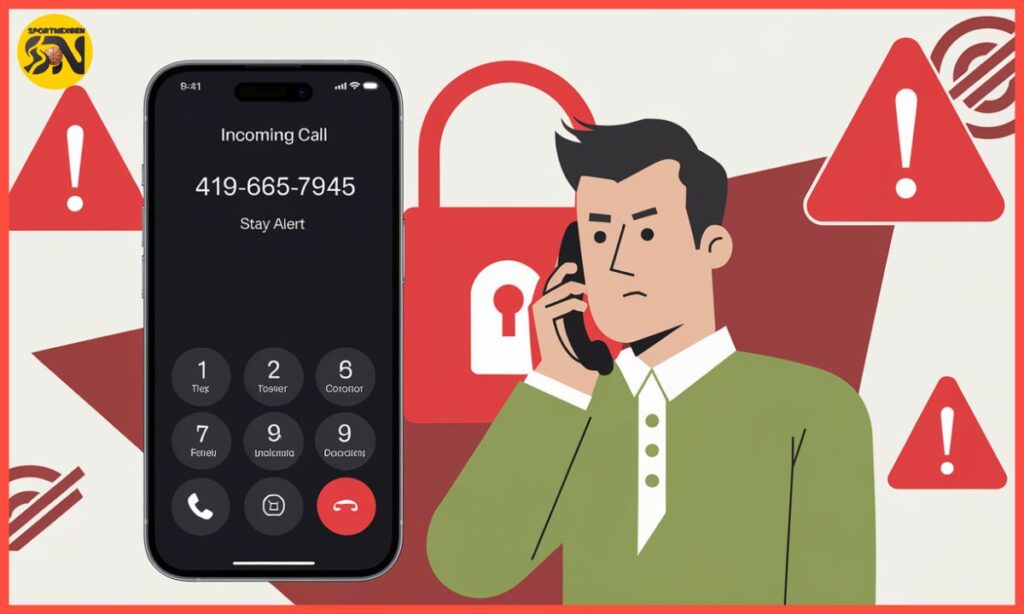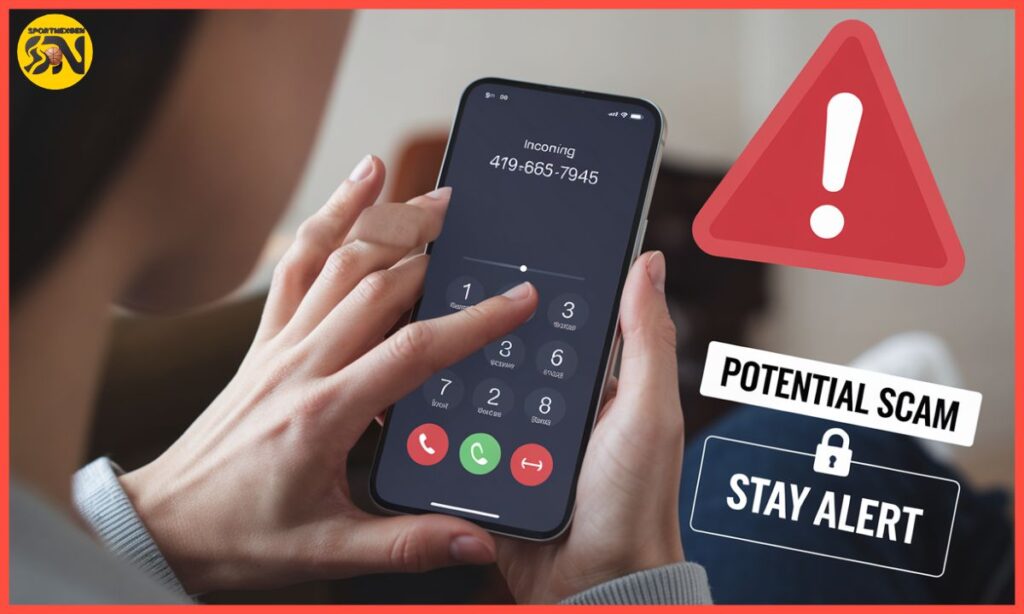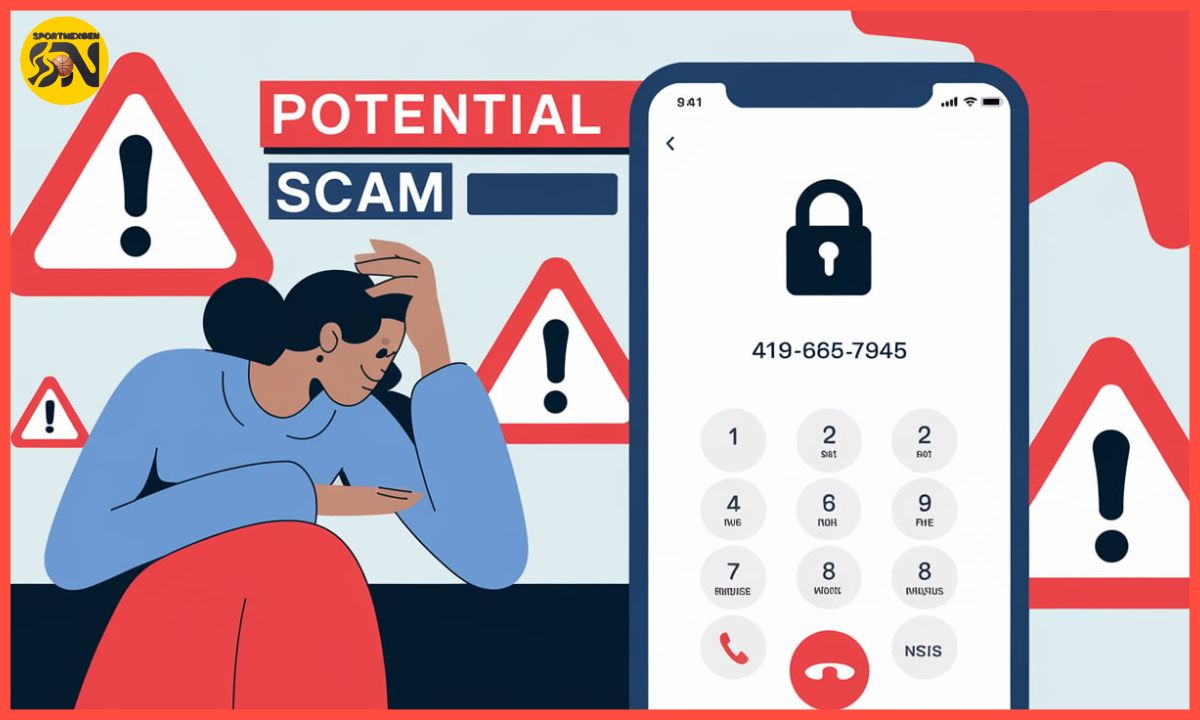The phone number 419-665-7945 has recently come to attention as a potential source of fraudulent activity. While the exact nature of the scam associated with this number may vary, individuals must be aware of its existence and exercise caution if they receive calls from this number. Scammers often use tactics like spoofing legitimate-looking phone numbers to gain trust and deceive their targets.
What is Publishers Clearing House (PCH)?
Publishers Clearing House is a well-known American company. It was founded in 1953. PCH started as a magazine subscription service. Over time, it expanded into merchandise sales. The company is famous for its sweepstakes and prize giveaways. PCH offers various prizes. These range from small amounts to multimillion-dollar jackpots. Winners are often surprised at home by the PCH Prize Patrol.
These moments are frequently televised. This has made PCH a household name. The company runs legitimate sweepstakes. Entry is free. Consumers can enter online or by mail. PCH makes money through product sales, not contest entries. This business model has been successful for decades.
The Danger of PCH-Related Scams
Unfortunately, PCH’s popularity attracts scammers. These criminals exploit the PCH name. They prey on people’s dreams of winning big. Scammers create elaborate schemes to trick victims.
Many people fall for these scams each year. The victims often lose money. Sometimes, they also become victims of identity theft. It’s crucial to understand how these scams work. Knowledge is the best defense against fraud.
Identifying PCH Scams
Real PCH prizes never require upfront payments. The company doesn’t call winners of major prizes. Instead, they surprise them in person. Smaller prize notifications come by mail. PCH scams come in many forms. Some common red flags include:
- Unsolicited calls from 419-665-7945 or emails about winning
- Requests for money to claim a prize
- Pressure to act quickly
- Demands for personal financial information
Understanding the 419-665-7945 Scam

The number 419-665-7945 has been flagged by many as suspicious. It’s often linked to fraudulent activities. Callers from this number typically claim to represent Publishers Clearing House (PCH). They tell people they’ve won a big prize. But it’s all a lie. This scam is part of a larger trend. Scammers often impersonate well-known organizations.
They do this to gain trust quickly. PCH is a common target because of its popularity. Many people dream of winning their sweepstakes. The 419-665-7945 419 area code is for Northwest Ohio. But don’t be fooled. Scammers can easily fake caller ID information. They might not be calling from Ohio at all. They could be anywhere in the world.
How the Scam Works
The 419-665-7945 scam follows a predictable pattern. Here’s how it typically unfolds:
- Initial Contact: You get a call from 419-665-7945. The caller says you’ve won a huge prize. It might be millions of dollars. Or it could be a luxury car.
- Creating Excitement: The scammer tries to get you excited. They want you to let your guard down. They might give you fake “verification” numbers. These are meant to seem official.
- Asking for Information: Once you’re hooked, they ask for personal details. They might want your social security number. Or your bank account information. Sometimes they ask for your address.
- Requesting Money: This is a big red flag. The scammer says you need to pay a fee. It might be for “processing” or “taxes”. They’ll say it’s to release your prize.
- Pressure Tactics: They’ll try to rush you. They don’t want you to think too much. They might say the offer is time-sensitive.
- Follow-up Calls: If you fall for it once, they’ll keep calling. They’ll ask for more money. They’ll have excuses for why you haven’t received your prize yet.
Understanding the potential risks associated with unfamiliar phone numbers is an essential part of protecting oneself in today’s digital age. The area code 419-665-7945 419 corresponds to northwest Ohio, but it’s important to remember that scammers can easily manipulate caller ID information to appear as if they’re calling from anywhere. This particular number serves as a reminder to always be vigilant when receiving calls from unknown sources.
Read This Blog:https://sportnexgen.info/tertib-ketika-mendulang-emas/
Protecting Yourself from PCH Scams
Remember, PCH initiates Not contact 419-665-7945 only through the mail for most prizes. The Prize Patrol only comes in person for major awards. They never call ahead from that time of number 419-665-7945. Education is key to protection. Here are some tips to stay safe:
- Never pay to claim a prize. Legitimate sweepstakes are always free.
- Don’t give out personal information. PCH won’t ask for sensitive data over the phone or email.
- Verify all communications. Contact PCH directly using their official website or phone number.
- Be skeptical of urgent demands. Real prizes don’t have short expiration dates.
- Trust your instincts. If something feels off, it probably is.
What to Do If You’ve Been Scammed

Act quickly to minimize damage. Many scammers will move on to new victims if they meet resistance. Don’t be embarrassed to seek help. These scams are unfortunately common. If you think you’ve fallen victim to a PCH scam:
- Stop all communication with the scammer immediately.
- Contact your bank if you’ve shared financial information.
- File a report with local law enforcement.
- Report the scam to the Federal Trade Commission (FTC).
- Consider placing a fraud alert on your credit reports.
The Role of Technology in PCH Scams
Technology plays a big role in modern PCH scams. Scammers use email phishing tactics. They create fake websites that look real. Some use social media to spread false information. Phone scammers often use number spoofing. This makes their calls appear to come from legitimate sources.
They may also use robocalls to reach many potential victims quickly. Be cautious with all digital communications. Verify email addresses carefully. Don’t click on suspicious links. Use official apps and websites only. Keep your devices’ security software updated.
Legal Actions Against PCH Scams
Law enforcement agencies actively fight PCH scams. The FTC has taken action against several scam operations. They work to shut down fraudulent websites and phone lines. PCH itself cooperates with authorities. They provide information to help catch scammers. The company also educates consumers about fraud prevention.
They have a dedicated page on their website about avoiding scams. Despite these efforts, new scams emerge regularly. Criminals adapt their tactics to avoid detection. This makes ongoing vigilance necessary for all consumers.
Read This Blog:https://sportnexgen.info/honngen-civil-war-sword/
The Impact of PCH Scams
PCH scams can have severe consequences. Victims often lose money. Sometimes, the amounts are significant. This can cause financial hardship, especially for vulnerable individuals. Beyond financial loss, there’s an emotional impact. Victims may feel embarrassed or foolish. This can lead to underreporting of scams.
Some victims experience lasting trust issues. In some cases, stolen personal information leads to identity theft. This can have long-term effects on a person’s credit and financial well-being. Recovery from identity theft can be a long, stressful process.
How PCH Is Combating Scams
PCH encourages winners to verify their wins. They provide resources for checking the legitimacy of communications. The company never charges fees for winning. They emphasize this fact in their marketing. Publishers Clearing House takes scams seriously. They have implemented several measures:
- Clear communication about their practices
- Education initiatives for consumers
- Cooperation with law enforcement
- Technological safeguards on their platforms
- Regular updates on current scam tactics
Frequently Asked Questions
What is 419-665-7945?
419-665-7945 is a phone number associated with potential scam activities. It’s often used in fraudulent calls claiming to be from Publishers Clearing House.
How does the 419-665-7945 Scam work?
The scammer calls from 419-665-7945 claiming you’ve won a prize. They then ask for personal information or money to “claim” the non-existent prize.
What should I do if I receive a call from 419-665-7945?
Hang up immediately. Don’t engage with the caller or provide any information. Consider blocking the number.
Is it safe to answer a call from 419-665-7945?
If you receive a call from this number 419-665-7945 then It’s best not to answer calls from unknown numbers. If you do, don’t share any personal information.
How can I report the 419-665-7945 Scam?
Report it to the FTC, your local police, and Publishers Clearing House if they were impersonated.
Conclusion
In light of the potential scam associated with 419-665-7945, individuals must remain alert and informed about the various tactics used by fraudsters. This specific number highlights the ongoing challenge of phone-based scams and the importance of maintaining a skeptical approach to unsolicited calls. By staying informed and sharing knowledge about such potential threats, we can collectively work towards reducing the impact of these fraudulent activities.
Moving forward, it’s essential to remember that legitimate organizations rarely, if ever, initiate contact through unsolicited phone calls, especially regarding sensitive matters or financial transactions. If you receive a call from 419-665-7945 or any unfamiliar number, it’s advisable to exercise caution, verify the caller’s identity through official channels, and never share personal or financial information over the phone unless you’ve initiated the call to a number you trust. By adopting these practices, we can better protect ourselves and our communities from falling victim to phone scams.

Hayyat is a talented content writer and digital marketer with expertise in SEO, social media management, and online marketing. She excels at creating impactful, data-driven content to help businesses connect with their target audience and achieve measurable outcomes.





